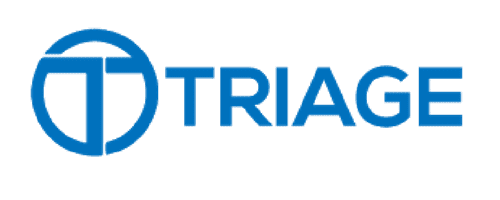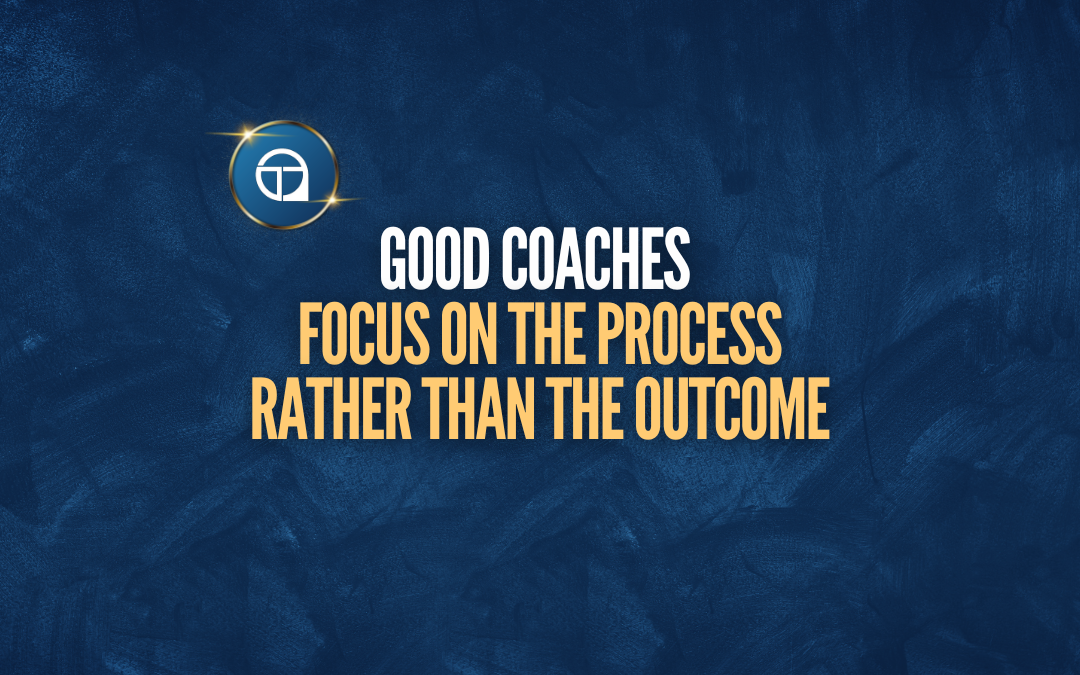I’ve been a coach for a longer time than I would like to admit, and I have seen the industry evolve a lot, new techniques have emerged, and a lot has changed. However, one principle has remained timeless, and one I wish I had learned earlier is the importance of focusing on the process rather than the outcome.
If you’re a newer coach, this mindset shift can not only transform your clients’ results but also set you apart as a truly effective professional. Let me explain why focusing on the process rather than the outcome is one of the best mindset shifts you can help your clients make.
Control What You Can Control
Early in my career, I grappled with the misconception that success was all about outcomes.
If a client didn’t hit a weight loss target or didn’t PR in the gym, it felt like a failure, and I am sure my clients did too. After all, I put a lot of emphasis on the actual outcome.
Over time, I realised this perspective was deeply flawed. What truly matters isn’t controlling the outcome, it’s mastering the process that leads to growth. Here’s why this shift in focus is transformative for both coaching and your own personal achievement.
Ultimately, you don’t have control over the outcomes, but you do have control over your habits.
Outcomes are the end results we aim for: the number on the scale, the race time, or the achievement of a career milestone.
While they provide direction, they’re inherently influenced by external variables. They are things we can’t predict or control. Life is messy. Stress, illness, family emergencies, or even a bad night’s sleep can derail progress, despite flawless planning and diligent effort.
Your clients might have the best intentions and follow a plan diligently, but life can just get in the way sometimes and can slow progress. When clients fixate on outcomes, these variables can lead to disappointment and self-doubt, even when they’re putting in great effort.
When outcomes are the sole focus, clients can spiral into frustration and self-doubt. They feel like failures for circumstances beyond their control, and this negative emotional cycle can lead to burnout, disengagement, or even giving up entirely.
Often, your clients will be doing everything right, and they aren’t seeing the outcome they want. This is very common with weight loss, where the weight loss doesn’t occur in a linear manner. People often fall off track with things, when in reality, they just need to stay the course for longer and the results will come.
Focusing on the outcome rather than the process, unfortunately, often leads to disappointment.
Now contrast that with a focus on the process and their daily habits. Habits are entirely within your clients’ sphere of influence. They can decide to wake up and drink a glass of water, show up for a workout, or prepare a healthy meal. These actions are tangible, measurable, and repeatable.
When you focus on the process and cultivating habits, you’re helping clients take control of their journey.
Not only does this create a sense of ownership, but it also shifts the mindset from an all-or-nothing mentality to one of growth and consistency. Clients begin to see that their daily actions matter more than any single result.
This is where the magic happens. Clients start to feel like they are in charge of their success, rather than at the mercy of factors they can’t control.
The Problem with Fixating on Outcomes
Understanding why focusing on outcomes can backfire is important for your overall understanding of why you should focus on the process rather than the outcome. When clients come to you with a specific goal (“I want to lose 20 pounds in three months” or “I need to run a marathon under four hours”) it’s tempting to structure your coaching around achieving those goals.
After all, clients love measurable progress, and it’s satisfying for both parties when a big milestone is achieved. But here’s the catch: outcomes are unpredictable.
When you, as the coach, set expectations around outcomes, you’re creating a fragile framework for success.
What happens if the client doesn’t hit their goal? Maybe they’re doing everything right, exercising consistently, eating well, and prioritising sleep, but their weight loss slows due to factors like water retention, muscle gain, or a hormonal imbalance.
Suddenly, they feel like they’ve failed. And worse, they might feel like you’ve failed them.
This is especially problematic because focusing on outcomes often overshadows the incredible progress clients make in other areas. A client might lose only 5 pounds instead of the desired 10, but if they’ve built strength, improved their endurance, and feel more energetic.
But they don’t see all the successes because they are so focused on the singular outcome.
By tying success to outcomes, you’re missing the opportunity to highlight these wins, which are often far more important and meaningful in the long term.
On the flip side, celebrating habits and focusing on the process reframes the entire journey. Habits are measurable in a different way: Did the client show up for their scheduled workouts? Did they drink enough water? Did they make healthier food choices?
These are victories that happen daily and can be celebrated regardless of what the scale, stopwatch or weight on the bar says.
Habits Are the Building Blocks of Success
Think of habits as the foundation of a house. Outcomes are the roof. Without a strong foundation, the roof will collapse.
This analogy is particularly relevant in health and fitness because habits provide the structure that supports every success your clients achieve. You can’t cheat the process and get the outcome with health and fitness. You have to put in the work.
Imagine you’re working with a client who wants to lose weight. If you focus solely on the outcome, every conversation might revolve around numbers on the scale or how many calories they’re consuming. While these metrics can provide useful data, they’re not the whole story. And more importantly, they’re not sustainable drivers of motivation.
Instead, guide your client to adopt actionable habits. For example:
- Drink a glass of water before every meal: This small habit can reduce overeating, improve hydration, and create a moment of mindfulness around food choices.
- Prep lunches for the week every Sunday: Meal prepping sets clients up for success by reducing reliance on unhealthy convenience foods during busy workdays.
- Take a 10-minute walk after dinner each night: This habit not only aids digestion but also helps clients create a relaxing evening routine that’s easy to maintain.
What’s incredible about habits is their compounding effect. One small habit leads to another. A client who starts walking after dinner might find it easier to commit to morning workouts. A client who preps healthy lunches might notice they’re more energised throughout the day, which motivates them to stick with their fitness routine.
Habits build on each other, creating momentum that drives long-term success. Focus on the process rather than the outcome!
How to Celebrate The Process Rather Than The Outcome
Celebrating the process is an art form in itself. It requires a shift in mindset for both you and your clients. Here’s how to do it effectively:
- Track Progress on Habits, Not Just Outcomes Use tools like habit trackers, journals, or apps to help clients monitor their daily actions. Celebrate streaks like “You hit your hydration goal 7 days in a row!” or “Great job walking 15 minutes every day this week!” By focusing on habits, you’re reinforcing the behaviours that lead to sustainable change.
- Reframe Success When clients feel discouraged by slow progress, help them see the bigger picture. For example, if a client says, “I only lost 1 pound this week,” you can respond with, “But look at all the wins you had: you meal-prepped all your lunches, hit the gym 4 times, and got 7 hours of sleep each night. That’s incredible consistency!” This reframing helps clients appreciate their effort and persistence.
- Celebrate Non-Scale Victories (NSVs) Teach clients to recognise achievements that aren’t tied to weight or performance metrics. NSVs might include feeling more confident in their clothes, having more energy to play with their kids, or noticing improvements in mood and mental clarity. These victories are often more meaningful than any number on the scale.
- Praise Effort and Commitment Reinforce the idea that showing up is success in itself. Tell your clients, “I’m so proud of the effort you’ve put into prioritising your health. That’s what really matters.” This type of encouragement fosters resilience and keeps clients motivated through challenges.
Coaching the Habit Mindset
As a coach, it’s your responsibility to instil the habit mindset in your clients. This involves teaching them to value the process over the outcome and helping them understand that progress isn’t always linear.
- It builds resilience: Clients learn to see setbacks as temporary and manageable. Missing one workout doesn’t erase the habit of being active. Instead, it’s an opportunity to recommit and keep moving forward.
- It fosters long-term change: Habits become ingrained behaviours that clients carry with them long after your coaching relationship ends. This is the ultimate goal; to empower clients to maintain their health and fitness independently.
- It strengthens your coaching: By focusing on habits, you’re equipping clients with tools they can control, ensuring they’re active participants in their own success. This approach also deepens the trust and rapport you build with clients.
Focus On The Process Rather Than The Outcome
When you focus on the process rather than the outcomes, you’re shifting the focus from fleeting results to sustainable change. This not only helps your clients achieve their goals but also instils a sense of pride and autonomy in their journey. And as a coach, it’s incredibly fulfilling to see clients grow into confident, capable individuals who own their progress.
So, to all the new coaches out there: embrace the power of the process. Teach your clients to show up, stay consistent, and celebrate every small win. Over time, those habits will build a strong foundation for the outcomes they’re striving for, and you’ll be the coach who helped them get there.
We have a lot of free content available in our content hub, if you want to learn more. We specifically have a lot of content for coaches in our Coaches Corner. If you want even more free information, you can follow us on Instagram, YouTube or listen to the podcast. You can always stay up to date with our latest content by subscribing to our newsletter.
Finally, if you want to learn how to coach nutrition, then consider our Nutrition Coach Certification course, and if you want to learn to get better at exercise program design, then consider our course on exercise program design. We do have other courses available too. If you don’t understand something, or you just need clarification, you can always reach out to us on Instagram or via email.

